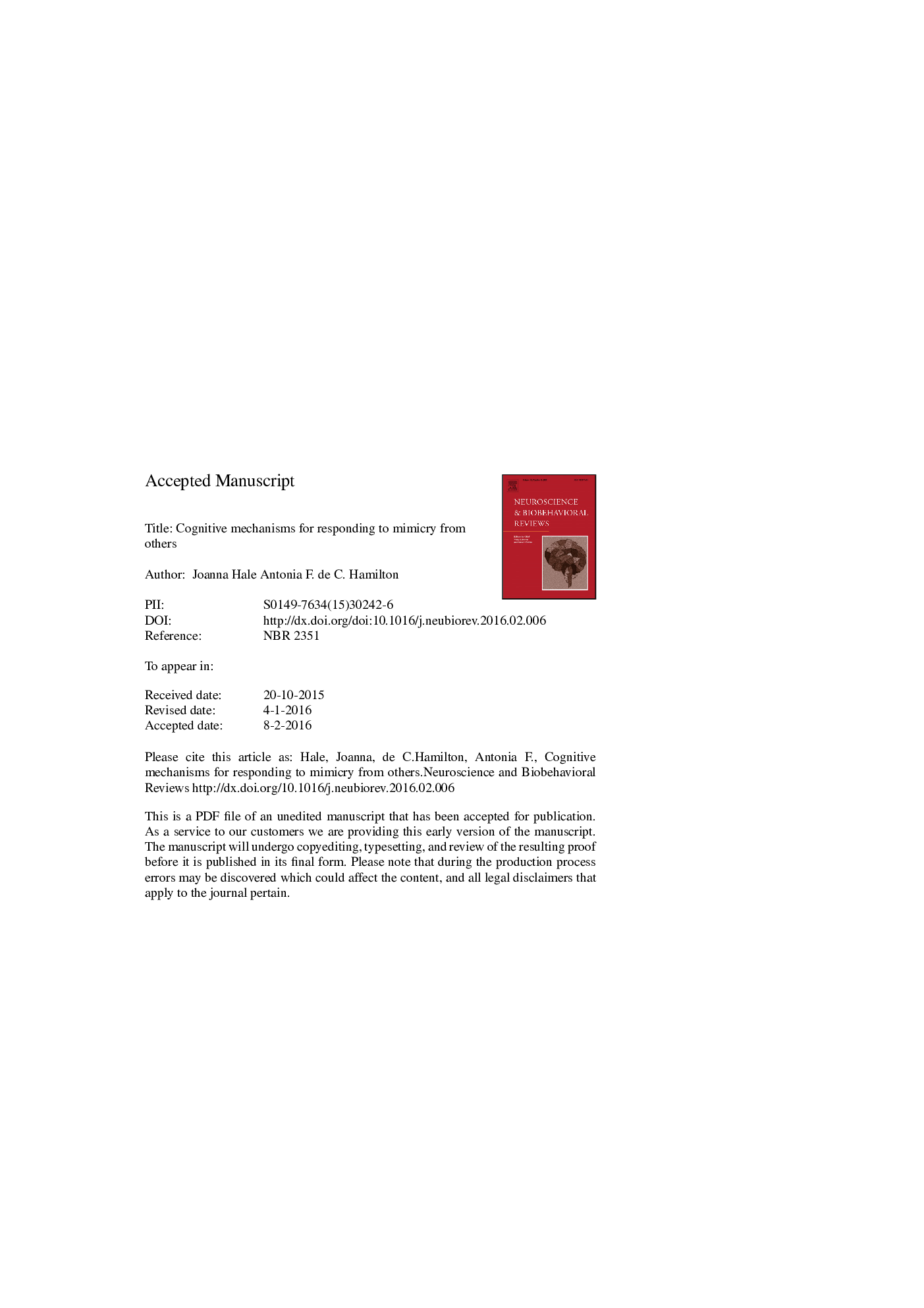| کد مقاله | کد نشریه | سال انتشار | مقاله انگلیسی | نسخه تمام متن |
|---|---|---|---|---|
| 7302989 | 1475307 | 2016 | 77 صفحه PDF | دانلود رایگان |
عنوان انگلیسی مقاله ISI
Cognitive mechanisms for responding to mimicry from others
ترجمه فارسی عنوان
مکانیسم شناختی برای پاسخ دادن به تقلید از دیگران
دانلود مقاله + سفارش ترجمه
دانلود مقاله ISI انگلیسی
رایگان برای ایرانیان
کلمات کلیدی
تقلید، تقلید، رفتار غیر کلامی، مدل های عصبی شناختی،
موضوعات مرتبط
علوم زیستی و بیوفناوری
علم عصب شناسی
علوم اعصاب رفتاری
چکیده انگلیسی
Compared to our understanding of neurocognitive processes involved producing mimicry, the downstream consequences of being mimicked are less clear. A wide variety of positive consequences of mimicry, such as liking and helping, have been reported in behavioural research. However, an in-depth review suggests the link from mimicry to liking and other positive outcomes may be fragile. Positive responses to mimicry can break down due to individual factors and social situations where mimicry may be unexpected. It remains unclear how the complex behavioural effects of mimicry relate to neural systems which respond to being mimicked. Mimicry activates regions associated with mirror properties, self-other processing and reward. In this review, we outline three potential models linking these regions with cognitive consequences of being mimicked. The models suggest that positive downstream consequences of mimicry may depend upon self-other overlap, detection of contingency or low prediction error. Finally, we highlight limitations with traditional research designs and suggest alternative methods for achieving highly ecological validity and experimental control. We also highlight unanswered questions which may guide future research.
ناشر
Database: Elsevier - ScienceDirect (ساینس دایرکت)
Journal: Neuroscience & Biobehavioral Reviews - Volume 63, April 2016, Pages 106-123
Journal: Neuroscience & Biobehavioral Reviews - Volume 63, April 2016, Pages 106-123
نویسندگان
Joanna Hale, Antonia F. de C. Hamilton,
